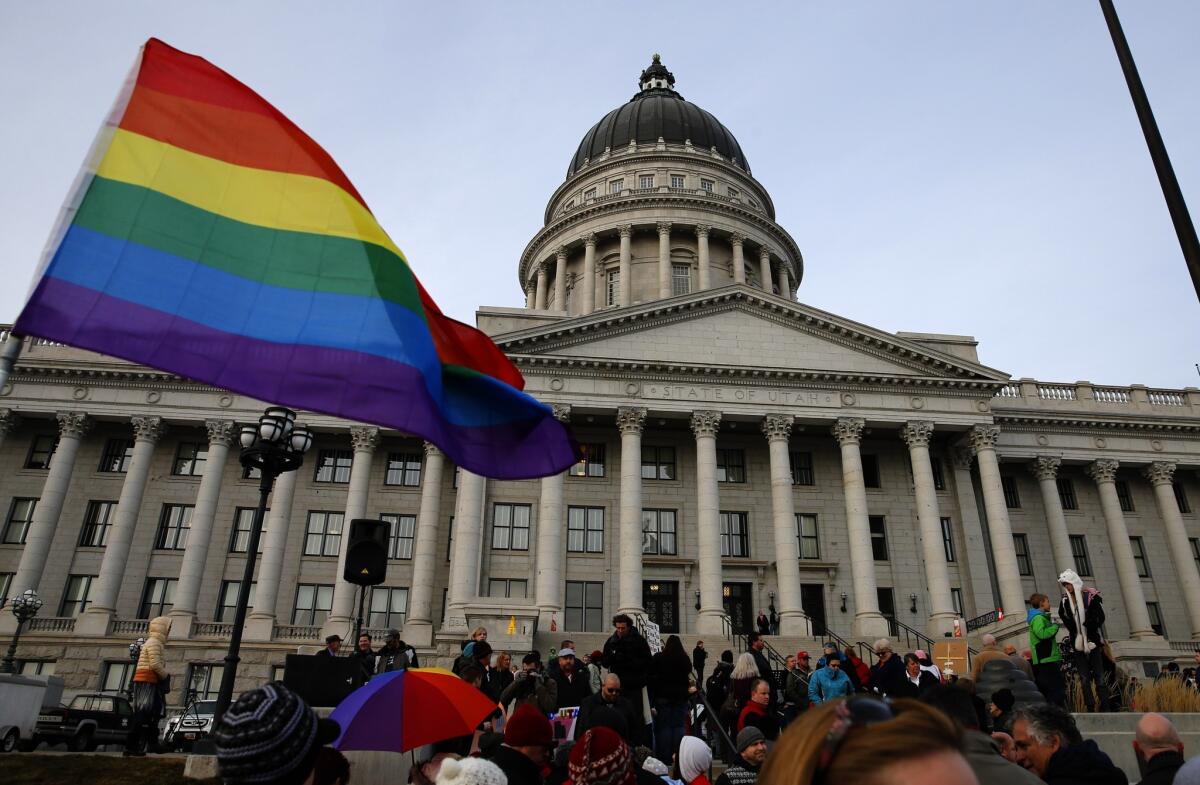Same-sex marriage at the Supreme Court, again

- Share via
Last year, as the Supreme Court was considering cases on both Proposition 8 and the Defense of Marriage Act, this page urged the justices to issue a ruling making it clear that state bans on same-sex marriage violated the Constitution. Instead, the justices handed down two decisions that, while they advanced the cause, stopped short of what should have been a resounding affirmation of marriage equality. If they thought they could delay a definitive ruling for a few more years, they were probably mistaken.
We don’t minimize the importance of the court’s decision in June to strike down a provision of the Defense of Marriage Act that defined marriage for federal purposes as the union of one man and one woman. In welcoming that ruling, we expressed the hope that the decision would have a ripple effect in lower courts — and it has. Federal district judges have struck down bans on same-sex marriage in Utah and Oklahoma.
The problem is that Justice Anthony M. Kennedy, who wrote the majority opinion in the DOMA case, did not explicitly address the constitutionality of laws against same-sex marriage, even as he eloquently condemned Congress for demeaning married same-sex couples. In a dissent, Chief Justice John G. Roberts Jr. seized on that point, and quoted from language in Kennedy’s opinion that noted the traditional authority of states to “define the marital relation.”
Moreover, on the same day as the DOMA ruling, the court studiously sidestepped the constitutionality of state bans on same-sex marriage. In holding that supporters of California’s Proposition 8 lacked standing to bring an appeal, it revived same-sex marriage in this state, but no national rule was established.
In striking down Utah’s ban on same-sex marriage, U.S. District Judge Robert J. Shelby relied on Justice Antonin Scalia’s warning that Kennedy’s DOMA opinion would lead someday to a decision striking down such bans. But “someday” is not now. Eventually Kennedy may adopt the position that bans on same-sex marriage are unconstitutional, but that isn’t a foregone conclusion. Meanwhile, the justices have stayed Shelby’s decision pending a ruling by a federal appeals court.
When the DOMA and Proposition 8 rulings were issued, court observers speculated that the justices wanted to allow the issue of same-sex marriage to percolate in the lower courts, a process they perhaps imagined would continue for several years. But the speed with which lawyers and lower-court judges are pressing the issue suggests that the justices will have to confront it sooner rather than later. When they do so, they should rule unambiguously that state bans on same-sex marriage violate the Constitution.
More to Read
A cure for the common opinion
Get thought-provoking perspectives with our weekly newsletter.
You may occasionally receive promotional content from the Los Angeles Times.









